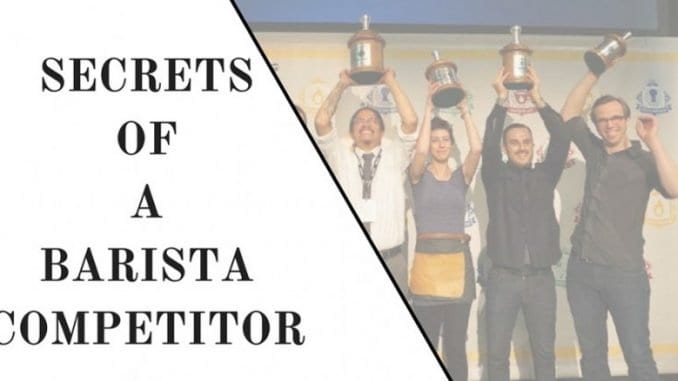
In this series, we’ll share the secrets of barista competitors. From choosing a theme to setting a practice schedule, competitors discuss how to compete smartly, efficiently, and effectively.
BY ASHLEY RODRIGUEZ
BARISTA MAGAZINE ONLINE
All right friends, we’re almost there. The United States Barista Championship is right around the corner, and we’ve heard tips, tricks, and techniques from over 15 coffee professionals from all over the world. As a fellow competitor, I’ve learned a lot listening to experts share ideas on what they think is important when training for competition. In our final installment of this series, I’m going to share with you my secrets.
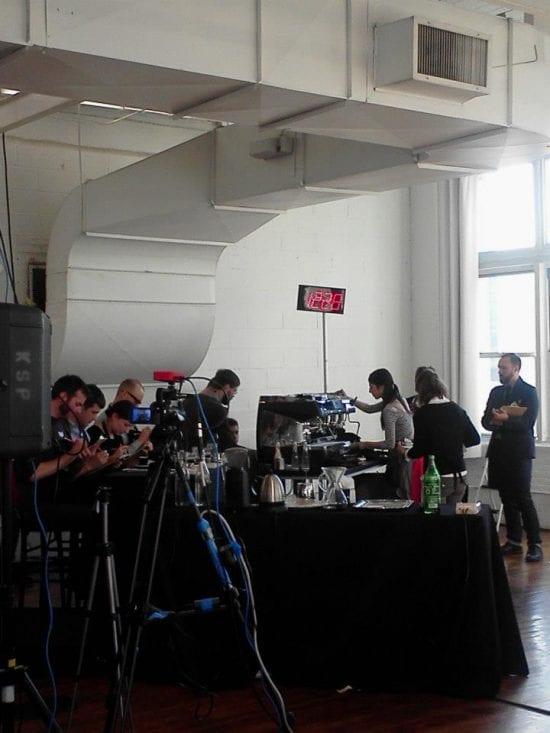
Now, I don’t exactly have any secrets per se. If you’re a regular Barista Mag reader, you might have read the series I wrote last year explicitly targeting first-year competitors. Last year, as I wrote this series, I placed 11th in the western division at the USCC Qualifying Event in Kansas City, Mo., and eventually placed 15th at USBC 2016. This year, I placed fourth at the Austin Qualifying Event. The way I approached training this time around was much more focused, and frankly much more edited (i.e., I didn’t practice as much, but I practiced a lot smarter). So here’s what I’ve learned over the past few competition seasons.
- Make intentional decisions and stick with them.
Most of your practice time in competition is going to be spent making decisions about the coffee you choose, how to serve it, what your signature drink should be, should you use a 4 oz or 3 oz drink for your milk course, etc. But a lot of this exploration is unnecessary and can be a time waster if not done efficiently. Coffee competitions aren’t about making the right decisions, but about how to explain the decisions you made. So if you decide to do a 3 oz drink for your milk course, make sure you know why that is. Spending a week oscillating between milk beverage sizes is a waste when you could be perfecting the drink and making sure it scores high marks with the judges. Look to the scoresheet to see what the judges are looking for, and make decisions accordingly.
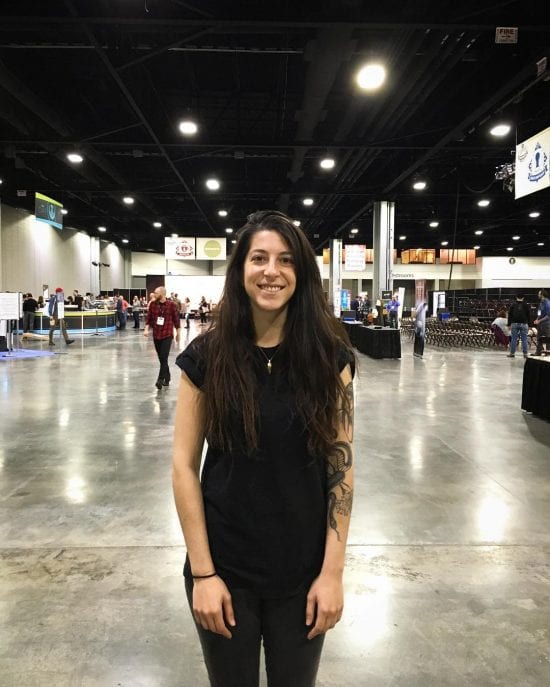
- The rules are the primary guidelines that dictate your decisions. Your theme is second.
If it wasn’t clear enough above, every decision you make should be checked against the rules. Do you want to serve a drink with a garnish? Check the rules and see if the judges consider it when they score you. Do you want to have extra towels to make sure you don’t spill? The rules say that you should have an intention for every towel, so being over prepared might harm you in the end.
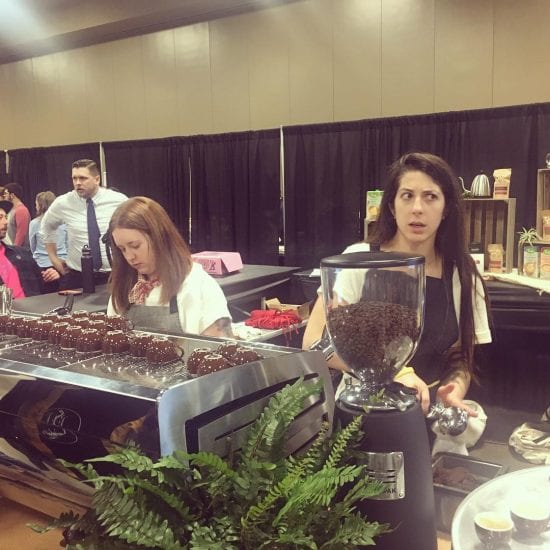
With that said, the second thing you should consider when you make a decision is your theme. If you’re talking about a particular aspect of coffee, the way you serve the judges should make sense with what you’re talking about and giving them to drink. This is especially true of the signature drink, where most baristas fall prey to the ‘so many choices, so little time’ trap and end up making decisions that don’t make sense. For example, I’m talking about power in my routine (you can read my USBC speech here), and during my signature drink course I talk about power as an amplifier. So every ingredient in my signature drink is meant to amplify the flavors in the espresso, including the way I plan to serve the drink (in an iSi to amplify the texture). An approach like this will not only help a competitor score highly in the ‘well-explained’ section of their signature drink, but it also eliminates a lot of wasted time trying to figure out things that ultimately don’t make sense with their theme.
- Say things that are true to you.
I’ll be the first to admit that I lose motivation all the time. Even now, writing this article is a distraction from practicing. But what makes competition worthwhile—and what anchors every decision I make—is knowing that what I’m talking about is important to me. As Katie Carguilo said in the last installment of this series, it’s the routines that have a message unique to the competitor that are memorable and elevate your routine from a simple song-and-dance to a composed service. The point of competition is to find the best stewards of our industry, and a routine with no point of view isn’t going to get you the win. So channel what matters to you—it can be different each routine, and even every day (my focus has certainly changed and evolved), but keep it central to your decisions and your overall message.
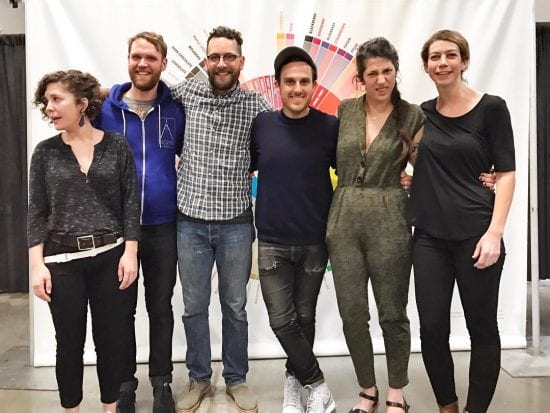
If you want to see me compete, I’ll be up during the semi-finals round of USBC on Saturday, April 22, at 12:02 p.m. I’d love to hear your thoughts, perspectives, and insights on this year’s competition. And if any competitors—past or present—have tips to share, I’d love to hear from you!
See you in Seattle!

